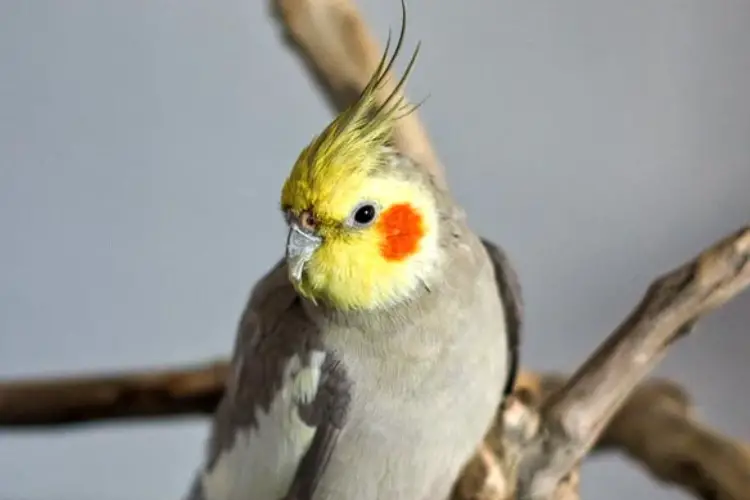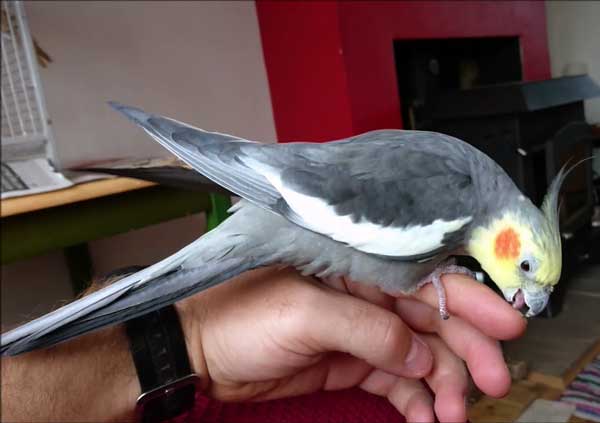In a world full of pollutants, almost every particle can cause nasal irritation. The Irritation causes a sneeze, an involuntary expulsion of air as the body removes the irritants. Both humans and animals have this mechanism, which is why you might notice it in your pet cockatiel.
So, why is my cockatiel sneezing? A major reason your cockatiel sneezes is because of bird dust, a residue in their down feathers. However, cockatiels have a sensitive respiratory system and need pure breathing air. Bacterial infections also cause sneezing and can be treated by a vet.
This article shares information on why cockatiel pets sneeze. You will also learn how you can help to prevent or remedy sneezing.
Why Is My Cockatiel Sneezing Repeatedly?
Birds of the order Psittaciformes, including cockatiels, have a sensitive respiratory system. Any irritant can cause them to sneeze, as they expulse it from their system. However, this is just one of the many reasons these pet birds sneeze.
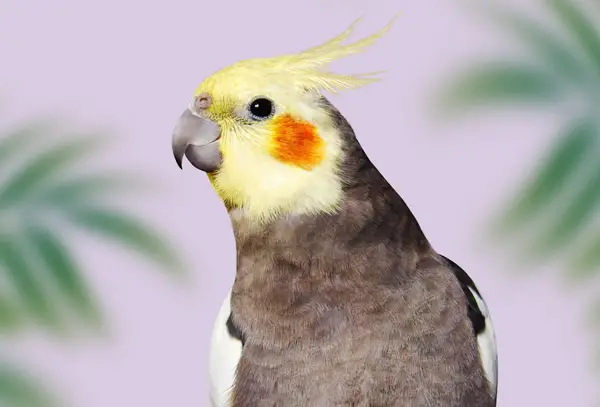
The following are possible reasons your pet bird sneezes. They’re categorized by severity, as some are more serious than others.
1. Stuck food particles
Like other animals, cockatiels sometimes inhale food particles that then cause them to sneeze. This mostly happens when they’re feeding on pellets and seeds. Should this happen, you ought to observe them closely to help them. This is especially if they appear to get choked after sneezing. If it’s choking, quickly explain to your vet how it’s behaving for advice on how to help it.
2. Dust
Dust particles in the air are the main reasons humans sneeze. If pet birds breathe dust in the environment, they can easily get irritated and sneeze. Confine your cockatiels in a well-aerated cage until the outside environment is favorable.
3. Poor ventilation
Lack or poor ventilation can make pet birds sneeze because of the stuffy air. This mostly happens if the cage is in a corner position where there’s less airflow. A properly aerated cage should allow free flow of air from every section. You’ll see accumulated moisture inside the cage if your ventilation is poor.
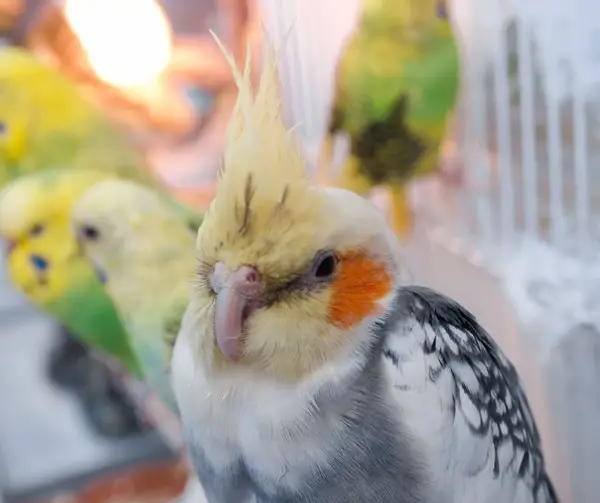
4. Cold
If your pet bird catches a cold, it may sneeze frequently. A Cockatiel sneezing at night is a sign that your bird feels cold. You can observe it more closely to see other behavior it exhibits. If it’s also puffing up its feathers, most likely, it is feeling cold. In this case, you should consider setting up a heater.
5. Smoke Irritation
Indoor smoking can make your bird sneeze as they are irritated by the smoke fumes from the cigarette. Cockatiels and most other birds generally have a sensitive respiratory system. They are particularly conscious about smoking, the reason nobody should ever smoke near them. In fact, continued exposure to smoke can kill your pet birds.
6. Irritations from cleaning products
Some cleaning products are too strong and irritate the birds’ breathing system. They’re most affected if these detergents are used to clean their cage. As such, it is recommended that you stick to cleaning products meant for cockatiels and other pet birds. You should not even use antifungal and antibacterial soaps to mist your birds, as some may react to them.
7. Blocked Sinus
Sinus is hollow pockets on the bird’s skull where air passes during an inhale to be warmed. If blocked, your bird will sneeze frequently. Sadly, this is not something you can identify. An experienced vet will come in handy before your bird experiences the worst.
8. Nutrition
Lack of vitamins can also contribute to the bird’s health problems. Avian sinusitis, an infection known to affect psittacine birds, has been linked to vitamin A deficiency. If the issue is related to nutritional deficiencies, your vet will recommend the right food to feed your cockatiels.
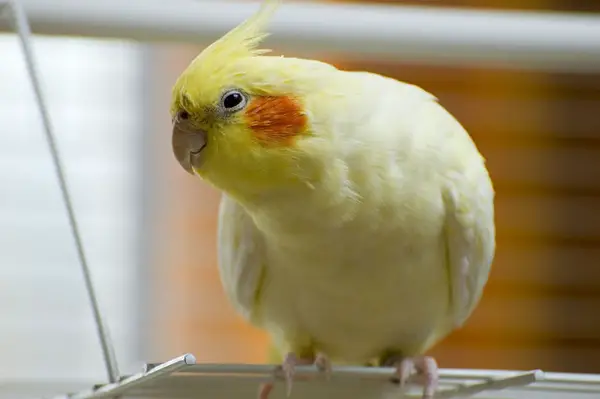
9. Infections
Bacterial and fungal infections like Pasteurella and candida can cause the bird to develop sneezing problems. It may not be a major issue, but you should do your best to arrest the infections before they spread.
10. Viral infections
Viruses like avian paramyxovirus can also be the reason your bird sneezes. This viral infection makes your bird lethargic and has runny eyes and beaks. If this happens to be the problem, your birds will need urgent medical intervention. This infection, specifically, is known to kill pet birds within three days.
11. Nasal tumors
Nasal tumors are growths that develop in the nose. They could also be cancer tumors, which require an early diagnosis to treat. But, it’s not always that they are cancerous. Seeking medical attention immediately may help you save the situation from escalating.
Also read: Cockatiel Smells Bad
Is It Okay If My Cockatiel Sneezes?
In most cases, it’s okay when a cockatiel sneezes one or two times a day. They do this to clear out their breathing system of dust particles. Also, their feathers produce a lot of powder which sometimes makes them sneeze.
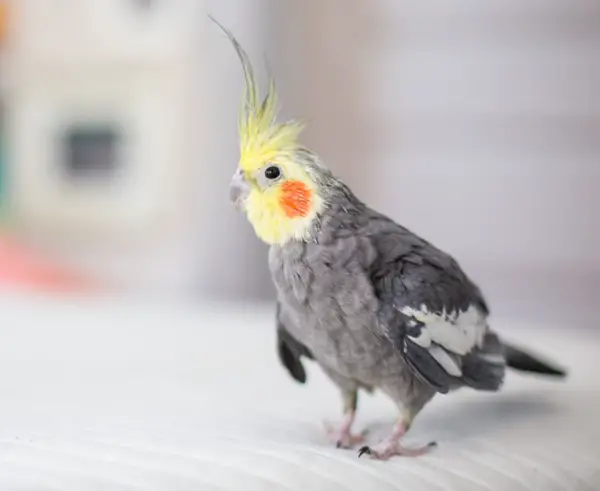
However, normal sneezing should happen occasionally. If your bird sneezes three or four times repeatedly, that is not a normal sneeze. Also, if the cockatiel shows other symptoms of diseases, the condition is not normal and needs treatment.
Cockatiel Sneezing Treatment
In other cases, home remedies will not be able to treat the cockatiels’ sneezing problem. For this, your pet needs treatment from an avian veterinarian. Possible treatment done by the vet include:
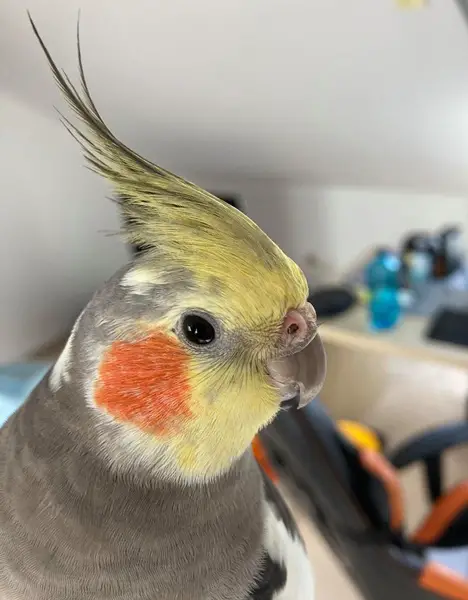
1. Flushing
Blocked sinuses are treated by flushing saline liquids into the blocked nose. You can also do a sinus flush using a syringe and sterile saline.
2. Treatment
Most cockatiel respiratory infections are treated by administering antibiotics that are prescribed by an avian vet. Antifungal drugs are used to treat fungal diseases and infections such as aspergillus.
3. Regular Checkup
Taking your pet to an avian vet regularly can help spot future respiratory health problems like cancer tumors.
How Do You Know If Your Cockatiel Has a Cold?
Like humans and most animals, cockatiels can catch a cold. However, the birds cannot get the disease from humans, but they do from bacteria and viruses if they get exposed. Your pet bird might be suffering from a cold, which is more likely if the bird also has the following symptoms
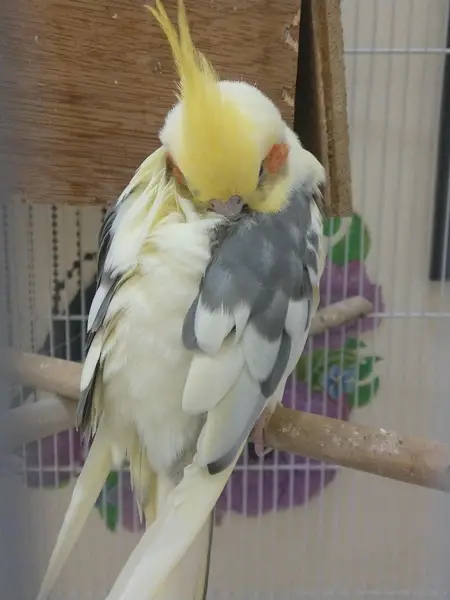
1. Frequent sneezing
If your pet bird has increased sneezing other than the usual daily few to clear its airways, it might mean it has a cold.
2. Coughing
Cockatiel coughing might be a sign it has a cold. A bird’s cough is merely a click, and you must be attentive to spot one.
3. Lethargy
A lethargic bird will spend most of the time sleeping and less on other activities like feeding and playing.
4. Vocalization
If your bird’s tone is changed, it might mean it has a cold. However, aspergillosis fungal infection is best known to cause voice change in birds as it affects respiratory systems.
What Can I Do to Help a Sneezing Cockatiel?
In most cases, the bird will often sneeze to clear its airwave, a mechanism accompanied by a nasal discharge. Also, cockatiels sometimes sneeze due to the dander, powder dust that helps keep feathers silky and soft. However, since some of the reasons are more hazardous, the following are ways you can help them.
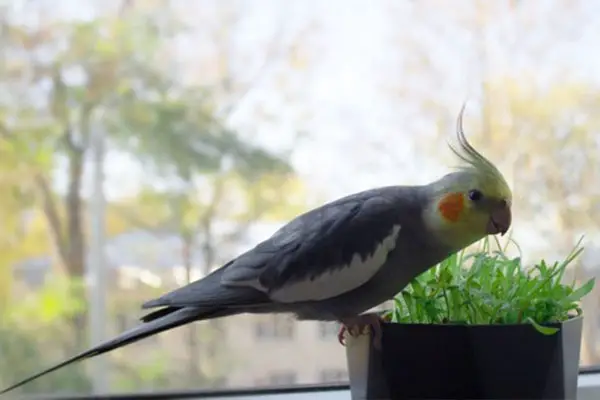
1. Better their environment
Improving the pet’s environment is the best way to solve their sneezing problem. Add air purifiers to the room where the cockatiel is and avoid smoking near it.
2. Use gentle cleaners
When cleaning the room or the bird’s cage, use gentle cleaners that don’t have strong scents. Vinegar has a fair scent and can be used to clean their cages without causing respiratory issues.
3. Improve their diet
Always provide the pets with a balanced diet to avoid nutritional deficiencies. Green, red, and orange vegetables are rich in vitamin A, a crucial vitamin for respiratory health.
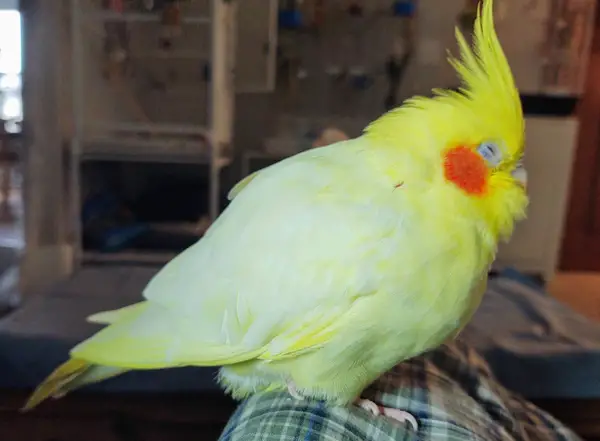
4. Flashing
Blocked sinuses should be treated by a professional vet, since it involves pushing liquids into their nose. However, you can also do a sinus flash using a syringe and sterile saline.
5. Treatment
Most cockatiel respiratory infections are treated by administering antibiotics. Antifungal drugs are used to treat fungal diseases and infections such as aspergillus.
6. Regular Checkup
Taking your pet to an avian vet regularly can help spot future respiratory health problems like cancer tumors.
Related: Cockatiel Plucking Feathers
FAQ
Despite the main reason for cockatiels sneezing being bird dust, that reason doesn’t convince most pet owners. They opt to research deeper and ask questions in the quest to safeguard their bird’s health. Below are some of these frequently asked questions and their answers.
At first, cockatiel sneezes are natural and not life and health-threatening. However, if the sneezing is more frequent and accompanied by other symptoms, you should be alert. If the bird is also coughing, has no appetite, and its vocals have changed, there might be a more serious medical issue.
When you notice your pet cockatiel sneezing, investigate further if the sneezes are frequent and check for other symptoms. Quick remedies include purifying the air, warming the room, and using gentle cleaners. For more serious cases, take your pet to see a professional veterinarian who will check for further issues.
Outro
Despite being low-management pets, cockatiels are sensitive to air and require an environment free from irritants. Though their sneezes are cute, some of the reasons they happen are more of a health concern. They range from simple ones like dust particles to the more serious ones like bacterial infections.
To remedy the sneezing, you can attempt a few home solutions, like improving the air quality. You can also warm the pet’s room when you suspect it’s cold and flush their sinuses to unblock. However, every remedy you attempt should be directed by a vet, who should take care of your pet if its condition worsens.
